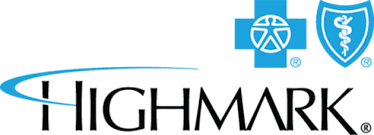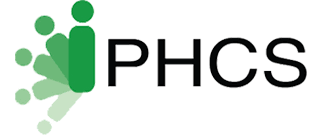Addiction Therapy & Substance Abuse Counseling
Our Approach to Substance Abuse Counseling
As a leader in California’s substance abuse and mental health treatment industry, Invigorate Behavioral Health provides each client with the most innovative, successful treatments for recovery from drug and alcohol addiction.
We use only evidence-based modalities and therapies that have been clinically proven to help people get sober and stay sober. Each of our therapy sessions is managed and led by our experienced and qualified therapists who are dedicated to treating your individual needs.

The Importance of Therapy in Substance Abuse and Mental Health Treatment
Substance abuse and mental health counseling is at the foundation of our Los Angeles addiction treatment program. Therapy plays a crucial role in the treatment of substance abuse and mental health issues for several reasons:
- Addressing root causes – Therapy explores underlying issues such as past traumas, mental health issues, and unhealthy thought patterns, helping individuals understand the origins of their struggles.
- Support and empathy – Therapy offers a non-judgmental space where individuals can express themselves freely, receive validation, and build trusting relationships with their therapists and peers. It can help clients develop a support system for recovery.
- Promote self-awareness – Through introspection and reflection, therapy helps individuals gain deeper self-awareness. They become able to identify harmful patterns and cultivate a more positive view of themselves. This can lay the groundwork for lasting personal growth.
- Develop coping skills – Counseling equips individuals with coping mechanisms to manage triggers, cravings, and difficult emotions, enabling them to navigate challenges effectively.
- Relapse prevention – By identifying triggers, developing strategies, and promoting accountability, therapy plays a pivotal role in preventing relapse in the long term.
Behavioral Therapies
Behavioral therapies are talk therapies or psychotherapies that help individuals get rid of negative behaviors and replace them with positive ones. Some of the most widely used behavioral therapies include:
- Cognitive-Behavioral Therapy (CBT)
- Dialectical Behavior Therapy (DBT)
- Motivational Interviewing (MI)
- Contingency Management (CM)
- Rational Emotive Behavior Therapy (REBT)
- Family Behavior Therapy
- 12-Step Facilitation Therapy
- Mindfulness-Based Relapse Prevention (MBRP)
- Acceptance and Commitment Therapy (ACT)
- Interpersonal Therapy (IPT)

Holistic Therapies
Holistic therapies go beyond the realm of what people typically picture when they think of therapy. These approaches are more hands-on, and they inspire healing through various non-traditional methods that address the interconnectedness of mind, body, and spirit. Holistic therapies emphasize the importance of treating the whole person rather than just the symptoms of their addiction.
Types of holistic therapies used in addiction and mental health treatment include:
- Acupuncture
- Yoga
- Meditation
- Massage Therapy
- Nutrition Counseling
- Art Therapy
- Equine Therapy
- Wilderness Therapy
- Adventure Therapy
- Music Therapy
Individual Therapy
Individual therapy sessions involve one patient and one counselor or psychologist. During individual therapy, you have an opportunity to discuss personal issues, private emotions, or concerns about treatment.
Individual drug and alcohol counseling also gives your therapist an opportunity to learn about your situation, evaluate your needs, and modify your treatment program according to your progress. This is a vital part of your treatment program, so it’s important to be open and honest with your therapist about all topics discussed.
Individual counseling sessions typically occur once a week, however, some patients may require more frequent sessions. Each session lasts for about one hour.
Benefits of Individual Therapy
Although group therapy sessions are used more frequently than individual therapy in addiction treatment, individual therapy plays a valuable role in the recovery process. Benefits of individual drug and alcohol counseling include:
- Gain a deeper understanding of yourself by increasing mindfulness and self-awareness
- Identify your unique triggers and learn how to deal with them
- Address any underlying mental health conditions such as depression, anxiety, or trauma
- Build a trusting relationship between you and your therapist
- Have an opportunity to discuss any sensitive or private topics with a mental health professional
- Give your therapist a deeper insight into who you are and what your needs are so they can match therapies and services to your needs
Above all, individual therapy gives you a safe space that is dedicated 100% to your personal healing.
Group Addiction Counseling
While individual therapy is important, group counseling plays an even bigger role in addiction treatment. At Invigorate Behavioral Health, our group therapy sessions are held in small groups of 6-8 individuals who work together towards a common goal: recovery.
Group members take turns discussing their thoughts, feelings, and experiences while obtaining feedback from the rest of the group. Groups consist of like-minded individuals with shared experiences who can relate to one another and learn from each other.
A wide range of topics may be discussed in group therapy, such as:
- Substance abuse and addiction
- Unhealthy habits or patterns
- Triggers
- Trauma and/or mental health
- Maladaptive thought processes
- Gender-specific topics
- Relapse prevention
Group therapy is a great way to connect with other people so you know you are not alone. Groups also allow you to explore a broader range of topics than individual therapy sessions do.
There are five primary types of group sessions that may be used during rehab. These include:
- Behavioral therapy groups
- Life skill development groups
- Interpersonal process groups
- Psychoeducational groups
- Support groups
Benefits of Group Therapy
Group substance abuse counseling is at the foundation of many addiction treatment programs. As a result, the majority of your time spent in treatment will be spent in group therapy.
There are many reasons why group therapy is so important during addiction treatment. Benefits of group sessions include:
- Reduce feelings of loneliness, isolation, and alienation among group members
- Groups allow members to play off the ideas of one another, allowing all participants to address a wide variety of topics that may be important to recovery
- Learn from the experiences of others
- Improve communication skills so you can build healthy, functional relationships in the future
- Working in a group allows you to experiment with new ideas, behaviors, and coping skills while the rest of the group acts as a sounding board for feedback
- Watching others recover can promote healing for all participants and spark inspiration
- Gain an understanding of the importance of peer support groups in addiction recovery
By participating in group therapy, you can gain insight into your behaviors, accountability for your recovery, and the companionship of like-minded individuals.
The Importance of Family Therapy in Recovery
Family therapy is a critical aspect of addiction recovery as it provides a platform for individuals and their families to openly discuss how addiction has impacted their lives and relationships. It helps uncover any harmful patterns or behaviors within the family dynamic that may contribute to the addiction, allowing for constructive changes to be made.
Moreover, family therapy facilitates the development of a strong support system. Family members learn how to offer meaningful support to their loved ones in recovery while also setting healthy boundaries. This support network is essential in preventing relapse and promoting long-term recovery success.
Through open communication and understanding, families can work together to mend relationships and move past the pain caused by addiction.
Explore Substance Abuse and Mental Health Therapy in Los Angeles, California Today
If you or someone you love is struggling with addiction, know that the road to recovery is just a phone call away. Our world-class addiction specialists in Los Angeles are dedicated to providing each individual patient with the specialized services they need to leave our program a changed individual. Using a small staff-to-client ratio, we are able to give each of our clients the undivided attention they deserve.
Get your recovery started today by calling us for a free, confidential consultation. Our admissions specialists are eagerly waiting for your call.
We Accept Most Major Insurance Plans
Treatment here is covered by insurance. Speak with an admissions coordinator now to verify your insurance coverage.














